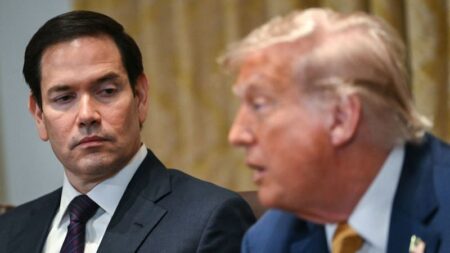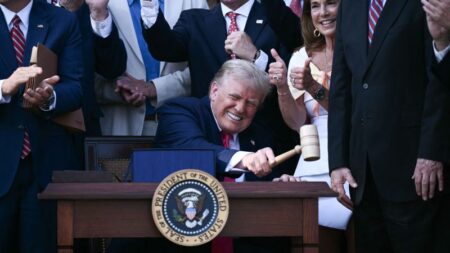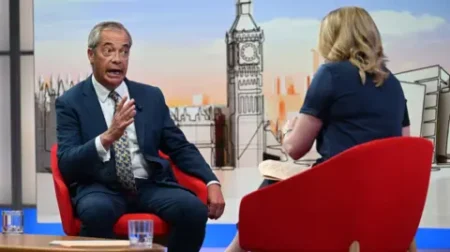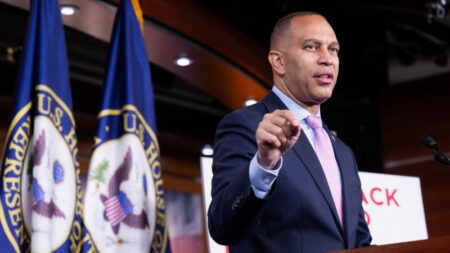The question of who holds the ultimate authority in the British government has resurfaced, igniting debates about the effectiveness of Prime Minister Sir Keir Starmer’s leadership. Following a recent incident where he expelled four Labour MPs for their dissent against party proposals, Starmer is perceived to be struggling to maintain control over his backbenchers. While it is expected that a prime minister should have the authority to lead without fear of rebellion, the dynamics within the Labour Party raise questions about the true chain of command.
Starmer’s political maneuvers, as analyzed by political observers, reflect his efforts to discipline a faction of Labour MPs that appeared increasingly defiant. Questions arise about why Starmer felt compelled to take such drastic action against a group that some argue was too small to pose a credible threat to his leadership. The timing of this purge, coming just days after he appeared to agree with one of the expelled MPs, Chris Hinchcliff, on amendments to planning laws, only adds to the confusion surrounding his leadership style.
Furthermore, the underlying issues extend beyond just internal party structure. With economic pressures mounting and world instability complicating governance, Starmer faces pressures from financial markets that are wary of the government’s fiscal strategies. Observers note that no one in government seems to possess a clear understanding of how to navigate these tumultuous waters, with some officials acknowledging the chaotic state of current governance.
With Starmer scheduled to meet President Donald Trump soon on Scottish soil, uncertainty clouds the potential outcomes. While Starmer’s ability to assert authority has been called into question, it is equally important to understand the broader political landscape that influences his leadership dynamics.
The recent expulsions from the Labour Party illustrate the challenges Starmer faces in maintaining party discipline. The small cadre of dissenters he targeted, signaling his intolerance for repeated rebellions, highlights not just his struggle for authority but also his recognition that a lack of party unity can hinder effective governance. A senior Labour figure expressed concern about the need for respect toward backbench MPs who are, after all, the conduits between the party and their constituents.
In addition to backbench contention, there lies a palpable pressure stemming from market dynamics. Financial markets exert a profound influence over government policy, where confidence in the UK’s economic management is crucial. The Labour government is acutely aware of the ramifications stemming from borrowing and fiscal irresponsibility, struggling to balance the needs of its party loyalists against the expectations of financial backers. The lessons learned from Liz Truss’s brief premiership and the market chaos it triggered serve as a grim backdrop to Starmer’s current decision-making process.
Compounding this stress is the necessity for a coherent government plan. Senior officials highlight that without a clear governing strategy, assertive leadership becomes increasingly elusive. The government may be busy meeting and discussing documentations that yield little actionable outcomes, thus indicating that Starmer’s administration is grappling with fundamental operational issues.
Proposed reforms such as the establishment of a more robust administrative center could assist Starmer in revitalizing his leadership authority. A future governance forum chaired by former senior civil servant Helen MacNamara aims to facilitate more decisive governmental action. However, real change may take time to implement, and immediate challenges remain pressing for Starmer’s administration.
Individuals within the Labour Party recognize the importance of maintaining public trust and solidifying their stance amidst the ongoing turmoil. The role of public perception cannot be underestimated, as voter sentiment concerning issues directly influences governmental action. As opposition parties like Reform UK garner rising interest, the Labour leadership must navigate the precarious balance of legislative authority while ensuring responsiveness to public concerns if they are to secure their political future.
In the coming months, as Starmer aims to exhibit stronger governance, he will need to showcase decisiveness that may resonate not only with Labour’s base but also with the broader electorate. The road ahead is fraught with challenges, as reconciling the diverse interests within his party while addressing market forces and public sentiment is critical for the viability of his leadership and the Labour Party’s legacy.











